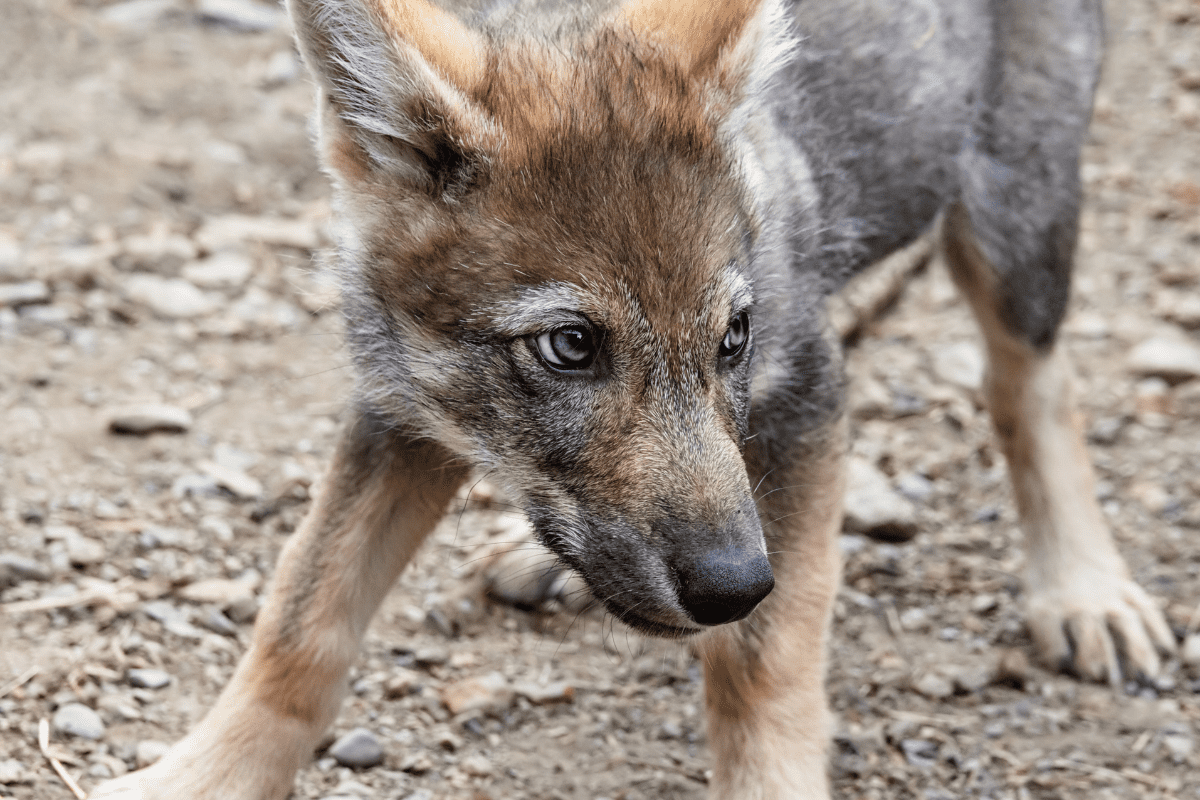Article originally published in The Daily Hive.
Animal lovers in B.C. are mourning the loss of Chia, a wolf who escaped from her enclosure at the Greater Vancouver Zoo Tuesday. Chia was tragically found dead on the side of the road yesterday.
Officials believe that Chia was hit by a car. And it’s known that animals raised in zoos for permanent captivity lack the survival skills of their wild counterparts. They do not recognize the dangers posed by cars on the road and are far more likely to associate human activity with food.
Chia’s sad ending is a devastating reminder of the concerns associated with keeping wild animals in captivity. Though zoo supporters will often claim that zoos breed animals in captivity for conservation purposes, captive-bred animals raised in unnatural zoo environments are not equipped to survive in the wild. And their survival in captivity, as it stands, can hardly be called living.
Walk through the zoo and you’ll see well-worn paths where animals like Hana the tiger spend their days pacing alongside the fences of their enclosures—as physically close to the free outside world as they’ll likely ever get. You’ll see a barren, concrete indoor pool where hippos Haben and Hazina can be found floating listlessly throughout the cold winter months. You’ll see giraffes repeatedly licking the bars of their enclosure. Abnormal, purposeless behaviours like this are common in captive animals who are unable to express their natural behaviours.
The Greater Vancouver Zoo has been aware of many animal welfare issues in their facility for years. The most recent report on conditions at the zoo, commissioned by the Vancouver Humane Society (VHS) and prepared by Zoocheck, raised alarms about a number of concerns.
Among them were concerns about the wolf enclosure’s small size and lack of complexity or enrichment. It was also recommended that the zoo stop breeding the wolves; yet young wolves including one-year old Tempest, who was also missing for several days, and six new cubs continue to be raised at the zoo for the entertainment of the public.
Unfortunately, the same issues raised in the report persist year after year, causing continued suffering to the many animals who are kept in captivity at the zoo.
High-profile incidents resulting in heightened public scrutiny of the zoo
In 2019, a 2-year-old child was bitten by a black bear after being able to enter an “unauthorized area.” The toddler had to be airlifted to hospital.
In 2020, the public raised concerns about an emaciated moose named Oakleaf, prompting an investigation by the BC SPCA. Oakleaf was then euthanized.
In 2021, a zoo employee was bitten when a jaguar climbed up a feeding chute. Rather than addressing the behavioural needs of this natural hunter and climber, the zoo welded bars to the bottom of the chute.
Just this year, the VHS filed a cruelty complaint with the BC SPCA after obtaining video footage of animals engaging in repetitive behaviours and in small, barren enclosures.
When will enough be enough?
This week’s tragic incident is the latest in a pattern of concerning incidents at the Greater Vancouver Zoo. But the series of high-profile cases that make it into the news are just the tip of the iceberg when compared with the monotonous, day-to-day suffering of the wild species confined to enclosures thousands of times smaller than their natural habitats.
If the Greater Vancouver Zoo refuses to make significant changes for the well-being of the animals they keep, a change must be made for them. That’s why the VHS is imploring provincial decision-makers to immediately address the outdated regulations around keeping, breeding, and transport of wild and exotic animals. Concerned citizens are encouraged to contact their MLAs now to protect wild animals from suffering in captivity.
How many more animals must we see put at risk, come to harm, and suffering at the zoo before change is made? For the sake of Chia and Tempest, Haben and Hazina, Hana and Oakleaf, and all the other wild animals who have not had their needs met in captivity, let’s hope we’ve reached our limit.

